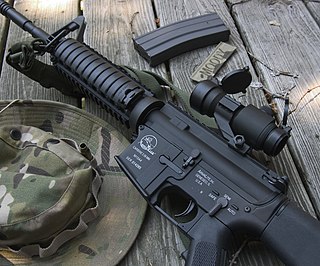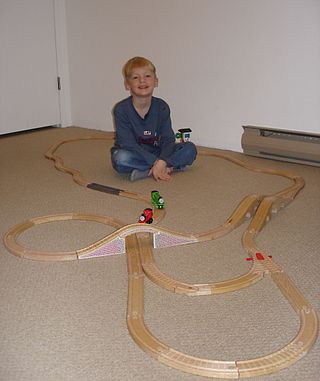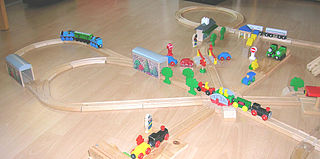This article needs additional citations for verification .(April 2007) |
Space Pets were a line of pneumatic-powered toys designed, manufactured and marketed by TOMY (Takara) for the American market in the early 1980s.
This article needs additional citations for verification .(April 2007) |
Space Pets were a line of pneumatic-powered toys designed, manufactured and marketed by TOMY (Takara) for the American market in the early 1980s.
The basic principle was to use a small air tank to capture, compress and controllably release air power and convert it into mechanical motion. Each Space Pet shipped with a "Tomy air pump" that was used to recharge the air tank. The air pump resembled a bicycle pump, although smaller. The flagship model was the "High Hopping Hoomdorm", which was something of a mechanical grasshopper that would hop furiously (and somewhat erratically) across the room. Other models included the "Stretch Legged Stoomdorm" which propelled itself in an accordion-like fashion, the "Fleet Footed Floomdorm" which sort of shuffled along on pie-shaped feet and the "Lurch Along Loomdorm" which raises up by means of scissor action, then fell forward and retracted its feet. There were four models in total. The entire Space Pets line was closely related to TOMY Air Powered Vehicle line. Variations of Space Pets were sold under other names outside of the US. For example, the "High Hopping Hoomdorm" was packaged and sold as the "Sky Hopper" in the United Kingdom. Likewise, "Lunar Legs" was an alias for the "Stretch Legged Stoomdorm".
Hoomdorms, in particular, were manufactured in two places: Singapore for distribution in Australia, and Japan for the United States.
Technozoids, or simply Zoids, is a Japanese science fiction media franchise created by Tomy that feature giant robots called "Zoids". A Zoid is essentially a large mechanical animal, with designs being based on animals; including dinosaurs, insects, arachnids and mythological creatures.

Blythe is a fashion doll, about 28 cm (11 inch) tall, with an oversized head and large eyes that change color with the pull of a string. It was created in 1972 and was initially only sold for one year in the United States by toy company Kenner. In 2001 the Japanese toy company Takara began producing new editions of Blythe dolls. There is a network of hobbyists who customize the doll for resale and create clothing and shoes for Blythe. Enthusiasts share photographs of their work and other types of dolls on the Internet.
Ertl is an American former manufacturing company and current brand of toys, best known for its die-cast metal alloy collectible replicas of agricultural machinery. Other products manufactured by Ertl include cars, airplanes, and commercial vehicles.

Super Soaker is an American brand of recreational water gun that uses manually-pressurized air to shoot water with greater power, range, and accuracy than conventional squirt pistols. The Super Soaker was invented in 1989 by engineer Lonnie Johnson. The prototype combined PVC pipe, acrylic glass, and an empty plastic soda bottle.

A toy balloon or party balloon, is a small balloon mostly used for decoration, advertising and children's toys. Toy balloons are usually made of rubber or aluminized plastic, and inflated with air or helium. They come in a great variety of sizes and shapes, but are most commonly 10 to 30 centimetres in diameter. Toy balloons are not considered to include "sky lanterns", although these too are or were used as child toys in some parts of the world.

i-Cybie (爱赛比) is a robotic pet that resembles a dog. It was manufactured by Silverlit Toys Manufactory Ltd Hong Kong from 2000 to 2006. i-Cybie was developed for commercial distribution by Tiger Electronics. Outrageous International Hong Kong distributed the electronic pet from 2005 to 2006. The i-Cybie robotic dog responds to sound, touch, movement, and voice commands. The toy robot can autonomously recharge its batteries using a special docking station. I-Cybie was the first mass-produced toy that used advanced voice recognition technology.

Tomy Company, Ltd. is a Japanese entertainment company that makes children's toys and merchandise. It was created from a merger on March 1, 2006, of two companies: Tomy and long-time rival Takara. The company has its headquarters in Katsushika, Tokyo.

Airsoft guns are replica toy guns used in airsoft sports. They are a special type of low-power smoothbore air guns designed to shoot non-metallic spherical projectiles (pb) often colloquially referred to as "BBs", which are typically made of plastic or biodegradable resin materials. Airsoft gun powerplants are designed to have low muzzle energy ratings and the pellets have significantly less penetrative and stopping powers than conventional airguns, and are generally safe for competitive sporting and recreational purposes if proper protective gear is worn.
1:144 scale is a scale used for some scale models such as micro/mini armor. 1:144 means that the dimensions of the model are 1/144 (0.00694) the dimensions of the original life-sized object; this equates to a scale of 1/2 inch per 6 feet of original dimension. For instance, an airplane 30 feet (9.14 m) in length would be a mere 2.5 inches (63.5 mm) long as a 1:144 scale model.

Tomica is a line of die-cast toy vehicles produced since 1970 by Takara Tomy Co. of Japan. Ostensibly, Tomica diecast were an outgrowth of Tomica World, an autonomous toy line of motorized train accessories that Tomy had created based on Plarail and produced since 1959. Similar in concept, Tomica can be thought of as the Japanese Matchbox - but focuses mainly on Japanese brands.

Cox Models, a former division of Estes Industries of Penrose, Colorado, was a multimillion-dollar hobby company, is one of the hobby industry's oldest companies and is noted for its production of miniature model internal-combustion engines.

Johnny Lightning is a brand of diecast model cars launched in 1969 by Topper Corporation, similar to the hugely successful Mattel's Hot Wheels cars. Their claim to fame at that time was that they were extremely fast compared to other brands of die-cast cars. Their most important technology was to mold in a small hook under the front axle so that they could be propelled by a lever-driven catapult, far faster than could be obtained by either gravity, or battery powered "supercharger" devices.
Flip Flap is a solar powered toy that resembles a plant.

Merchandise for the Thomas & Friends franchise has been produced to capitalize on the success of the television series Thomas & Friends. Whilst merchandise was produced alongside due to the popularity of the first of The Railway Series by the Rev. W. Awdry since 1945, and the original broadcast of the television series in 1984 in the United Kingdom, large numbers of manufacturers have sought to produce Thomas-branded items after the television series was broadcast in the United States and Japan.

Wooden toy trains are toy trains that run on a wooden track system with grooves to guide the wheels of the rolling stock. While the trains, tracks and scenery accessories are made mainly of wood, the engines and cars connect to each other using metal hooks or small magnets, and some use plastic wheels mounted on metal axles. Some trains are made to resemble anthropomorphical, fictional, and prototypical railroad equipment.

HEXBUG is a brand of infrared and automaton toys developed and distributed by Innovation First International. HEXBUG uses many elements used in BEAM robotics. First piloted in the US through RadioShack, HEXBUG is now sold in most major retail stores. The original Hexbugs are based on six-legged arthropods but now come in several different varieties. The name "HEXBUG" relates to the six-sided packaging it is sold in, rather than to its number of legs.

Micro armour refers to scale models made of lead, pewter, die cast metal or plastic, usually used for wargaming purposes. Variations of the name include: mini armour, microscale, mini tanks, miniature armour, miniature tanks, micro tanks, minitanks, minifigs, armour figurines, tank figurines, etc. are also used. Micro armour is a sub-category of model military vehicle miniature figures used for military simulation, miniature wargaming, scale models, dioramas and collecting.
Subaru Industrial Power Products was the brand name for products manufactured by the Industrial Products division of Subaru Corporation, which were previously sold under the Robin, Robin-Subaru and Wisconsin Robin brand. The line was sold under the Subaru brand, used by Subaru's automobiles for greater brand recognition. Subaru decided to close down the Industrial business to focus on the car business, selling Subaru power to Yamaha.
Denison Hydraulics is a publicly traded U.S.-based company that manufactures industrial hydraulic fluid power systems and components and is headquartered in Marysville, Ohio. Denison is owned by Parker Hannifin. Denison has annual revenues of about $180 million, has 1,150 employees in North America, Europe and Asia, and approximately 61 percent of its customer base is in Europe.

Rheem Manufacturing Company is an American privately held manufacturer that produces residential and commercial water heaters and boilers, as well as heating, ventilating and air conditioning (HVAC) equipment. The company also produces and sells products under the Ruud brand name. It is a subsidiary of Paloma Industries — Japanese: ja:パロマ (企業). What became Rheem started in 1925 as a supplier of packaging to the petroleum industry, and is currently headquartered in Atlanta, Georgia in the United States. The company is one of the largest manufacturers of both water heating and HVAC equipment in the United States, and also produces and markets products in Argentina, Armenia, Australia, Bahrain, China, Chile, Brazil, Canada, Iraq, Kuwait, Mexico, New Zealand, Perú, Oman, Qatar, Saudi Arabia, Singapore, UAE, and Ukraine.